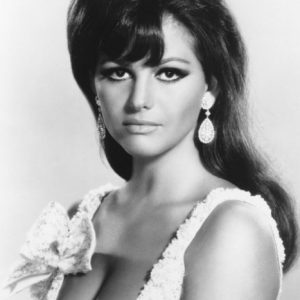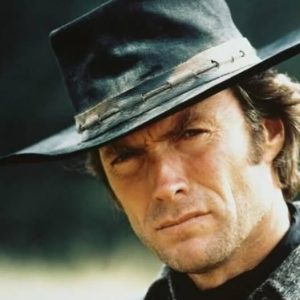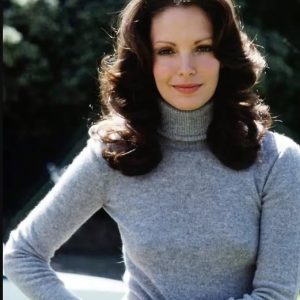Cary Grant, born Archie Leach, is a name synonymous with sophistication, charm, and impeccable style. With his debonair persona and effortless screen presence, Grant carved out a legacy that transcends time. Yet behind the polished exterior, there was a complex man who had to overcome a turbulent personal life to become one of Hollywood’s most iconic stars. Let’s dive into the fascinating story of Cary Grant: from his humble beginnings to his cinematic triumphs and enduring legacy.
The Early Years: A Childhood of Struggles

Cary Grant’s journey to stardom was not a typical one. Born on January 18, 1904, in Bristol, England, he grew up as Archie Leach, the son of a clothing presser and a homemaker. His early life was marred by hardship, particularly the abandonment of his mother when she was committed to an institution. At just 10 years old, Cary was told that his mother had passed away, only to later learn the painful truth about her mental health struggles. This emotional trauma had a profound impact on his childhood and would continue to shape his life in the years that followed.
As a teenager, Archie found solace in the world of theater. At the age of 13, he ran away from home to join Bob Pender’s traveling comedy troupe. Although his father insisted on sending him back to school, this was not the last time Grant would pursue a career in entertainment. After getting himself expelled, he rejoined the troupe and toured for two years, performing a variety of acts from juggling to acrobatics.
The Breakthrough: A Hollywood Transformation

By the late 1920s, Archie Leach was ready for a fresh start. He moved to New York City, where he struggled to make a name for himself in show business. It was during this time that he adopted the stage name “Cary Grant,” a change orchestrated by Paramount Pictures, who saw potential in the young performer. The new identity was not just a name change; it marked the beginning of a transformation into a Hollywood leading man.
In 1932, Grant made his film debut in This Is the Night, which kicked off his long and fruitful partnership with Paramount. His career blossomed throughout the 1930s and 1940s, as he starred opposite some of the most glamorous actresses of the time, including Marlene Dietrich and Mae West. It was in 1937 that Grant truly became a star with his role in the screwball comedy Topper. His flawless comic timing and physical humor captured the hearts of audiences, cementing his place as a leading man in Hollywood.
The Golden Era: Comedies, Thrillers, and Hitchcock
Grant’s career reached new heights in the 1940s. His charm and wit made him a natural in romantic comedies, but he also proved his versatility in more dramatic roles. In 1937, Grant starred in The Awful Truth, a comedy that became a classic, followed by The Philadelphia Story in 1940. This film, which also starred Katharine Hepburn and Jimmy Stewart, remains one of the most beloved films in Hollywood history.
But Grant’s range went far beyond the lighthearted roles for which he was known. In Suspicion (1941), Grant played a potentially sinister character, marking his first collaboration with the legendary Alfred Hitchcock. This film showcased his ability to bring depth to darker characters, and it set the stage for more successful collaborations with Hitchcock, including the classic Notorious (1946), where he starred opposite Ingrid Bergman.
Throughout the 1940s, Grant continued to shine in films such as None but the Lonely Heart (1944), where he earned his second Academy Award nomination, and To Catch a Thief (1955), which reunited him with Hitchcock and co-starred Grace Kelly. These films showcased Grant’s seamless blend of elegance, wit, and suspense, and solidified his status as one of Hollywood’s finest leading men.
A New Chapter: Later Films and Retirement

By the 1950s and 1960s, Grant had transitioned into more mature roles. In North by Northwest (1959), another Hitchcock thriller, Grant’s portrayal of an innocent man thrust into a world of espionage and danger became one of his most iconic performances. He continued to work with some of the greatest stars of the time, including Audrey Hepburn in Charade (1963), a romantic comedy that parodied the thriller genre with perfect charm.
Grant’s final film was Walk, Don’t Run (1966), in which he played a matchmaker. After this, Grant retired from acting, opting to focus on his business ventures. He worked as a director at the luxury brand Fabergé and served as a brand ambassador for the company, traveling around the world to promote its products.
Personal Life: The Man Behind the Star

Despite his image as a suave, sophisticated leading man, Cary Grant’s personal life was far from perfect. His troubled childhood and emotional baggage played a significant role in his difficult romantic relationships. Grant was married five times, and his relationships were often described as tumultuous. His fourth wife, actress Dyan Cannon, claimed that Grant was controlling and even coerced her into taking LSD, a drug he used to find inner peace.
Grant’s relationship with his only daughter, Jennifer, whom he had with Cannon, was one of the few bright spots in his personal life. Jennifer Grant wrote a memoir, Good Stuff: A Reminiscence of My Father, which detailed her experiences growing up with one of the most famous men in Hollywood.
Cary Grant’s Enduring Legacy

Cary Grant’s impact on Hollywood is undeniable. His films continue to be celebrated for their timeless appeal, blending humor, romance, and suspense with the elegance that became his trademark. He was awarded an honorary Oscar in 1970 for his unique mastery of the art of screen acting, and his legacy was further cemented with a Kennedy Center Honor in 1981.
Grant passed away on November 29, 1986, after suffering a stroke. His death marked the end of an era in Hollywood, but his influence lives on. President Ronald Reagan summed it up perfectly when he said, “He was one of the brightest stars in Hollywood, and his elegance, wit, and charm will endure on film and in our hearts.”
Conclusion: The Legacy of Cary Grant
Cary Grant’s life and career were filled with contradictions, but they are precisely what made him such a compelling figure. His rise from humble beginnings, his transformation into one of Hollywood’s most iconic stars, and his complex personal life all contribute to the enduring appeal of his work. Even after decades, Cary Grant remains a symbol of elegance and sophistication, a true legend in the annals of cinema.





